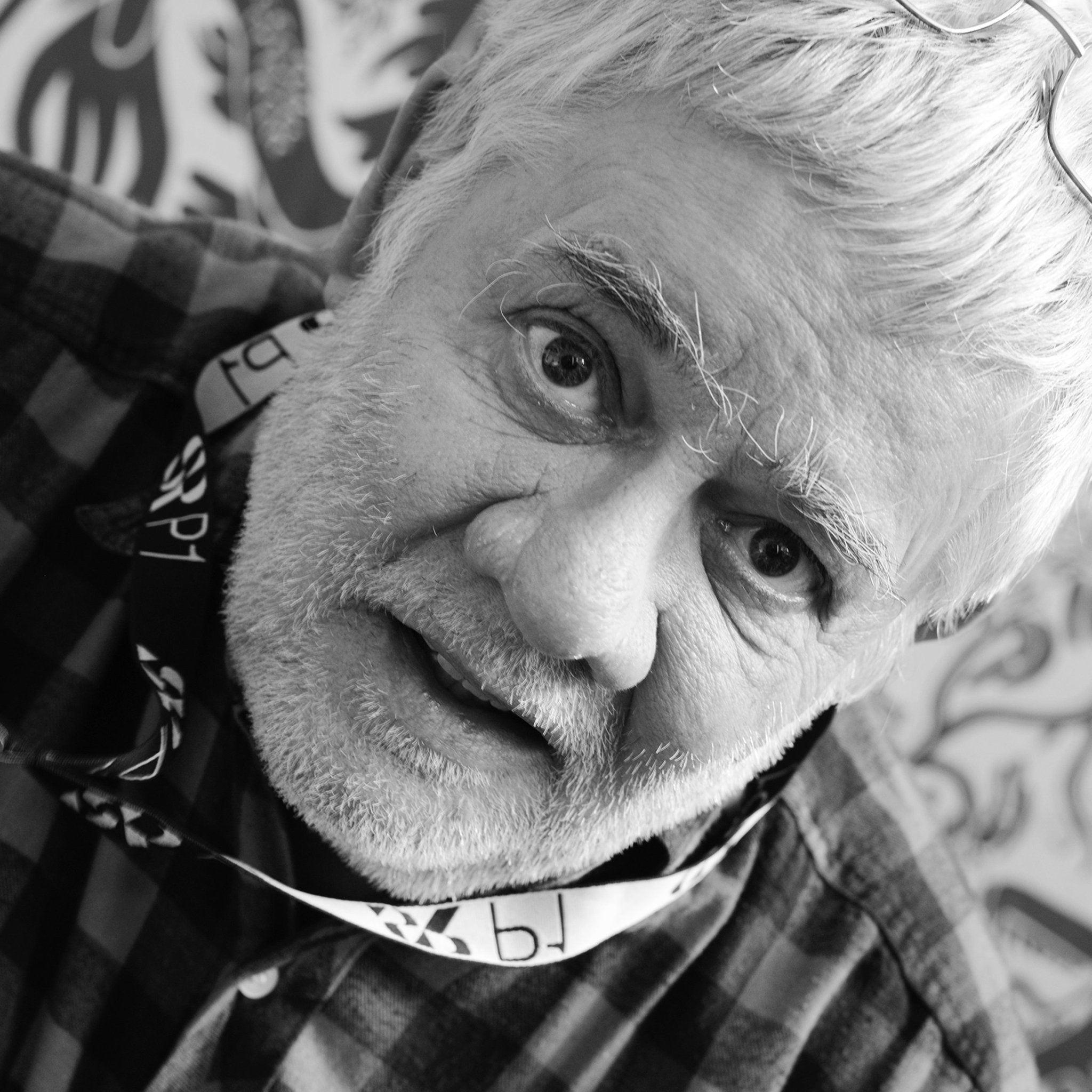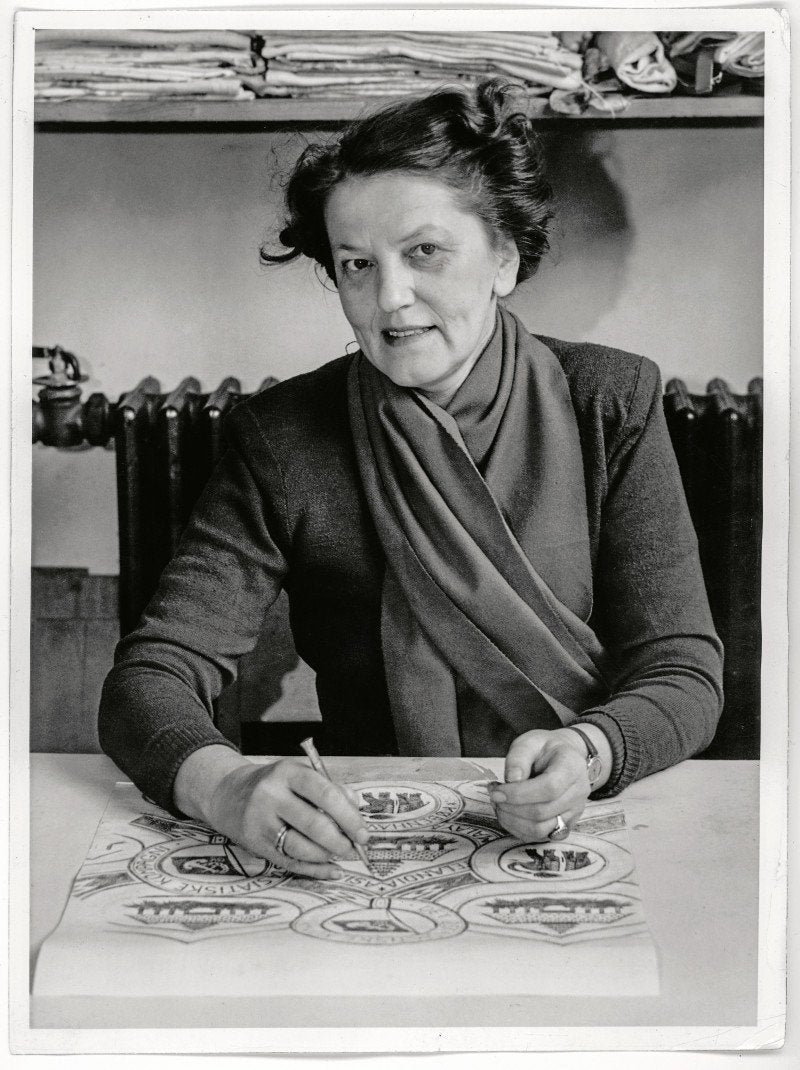Gocken Jobs

Gocken Jobs (1914 - 1995) is one of Sweden's most prominent ceramic and textile artists of all time. She was born in Falun as the youngest child in a group of seven siblings and grew up in an artistic family. Her father was a music teacher and composer and her mother painted and made flower embroidery. Of the seven children, five became involved in artistic activities.
Gocken Jobs, like her sister Lisbet Jobs, who is five years older, trained as a ceramicist at the Higher Art School (now Konstfack) in Stockholm. In 1935 she received her graduation certificate and the sisters then began working side by side in Lisbet Job's ceramic workshop on Bergsund's beach. Their ceramics with flamboyant flower decorations were shown during the 1930s in exhibitions in Sweden and abroad, were loved by the public and praised by the art critics of the time for their style.
Due to the limited availability of glaze during World War II, the Jobs sisters eventually began transferring their motifs from ceramics to fabric. Their breakthrough as textile designers came in 1945 when they launched their signature floral motifs at a major exhibition for the NK Textile Chamber - "When Beauty Came to the Village". Among the textile prints that were shown for the first time was "Tuvor", designed by Gocken Jobs. It was printed with white tufts against a colored ground, a color combination reminiscent of white glaze decoration on earthenware. The pattern greeted visitors in the form of a green canopy that formed the entrance to the exhibition.
Gocken Jobs is today best known for his floral motifs with meadows and discounts on textile goods by the meter. During her lifetime, she drew a large number of patterns which, with their timeless beauty, stand out among the Swedish textile heritage.



